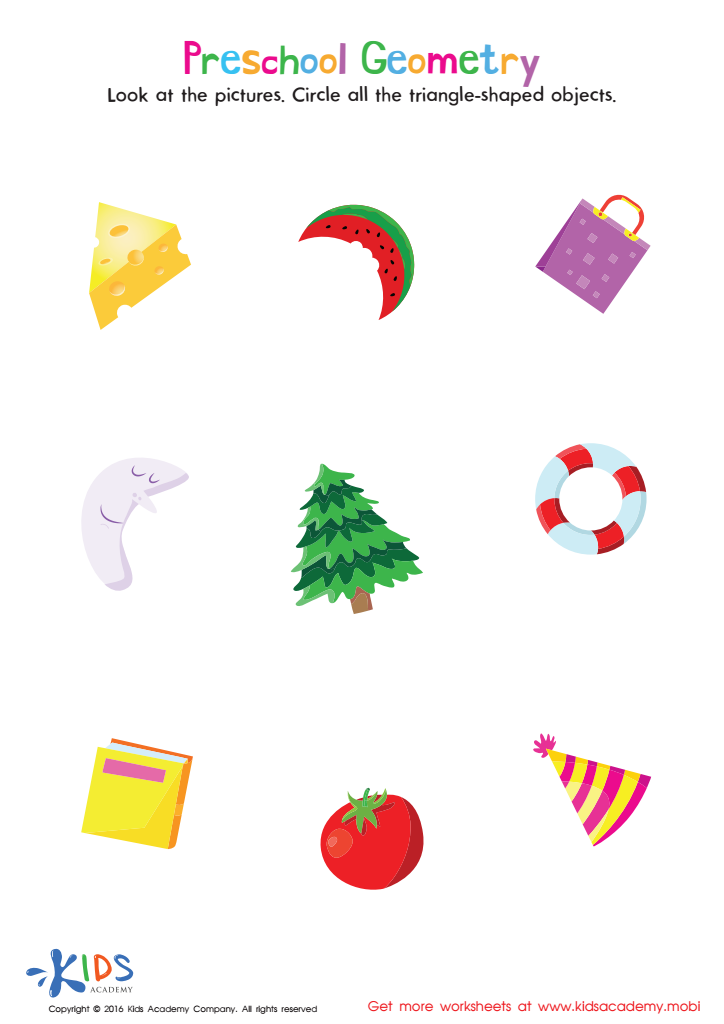Shape Recognition Normal Geometry Worksheets for Ages 3-6
22 filtered results
-
From - To
Help your little learners develop essential cognitive skills with our "Shape Recognition Normal Geometry Worksheets" designed for ages 3-6! These engaging, colorful worksheets encourage young children to identify, name, and differentiate various geometric shapes, laying the foundation for future math success. With age-appropriate exercises, kids will enjoy tracing, coloring, and matching shapes, making learning both fun and interactive. Perfect for homeschool settings or as supplementary material in classrooms, these worksheets support shape recognition, a critical skill for early learners. Set your child on a path to mathematical proficiency with our thoughtfully crafted resources tailored to young explorers!
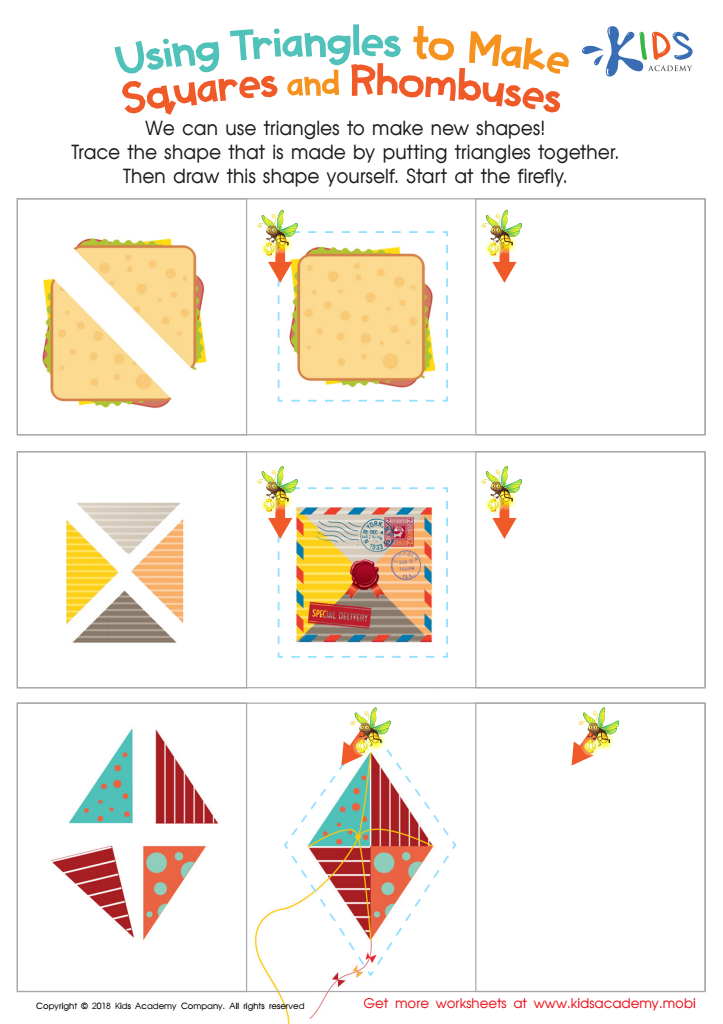

Using Triangles to Make Squares and Rhombuses Worksheet
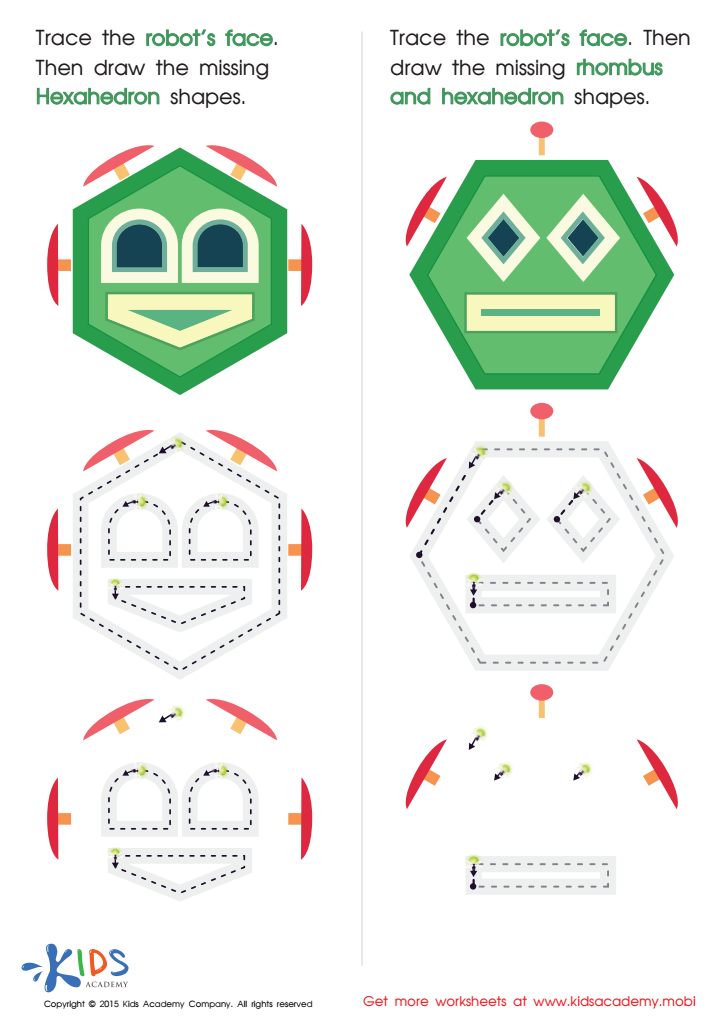

Practice Drawing Hexahedrons And a Rhombus Worksheet
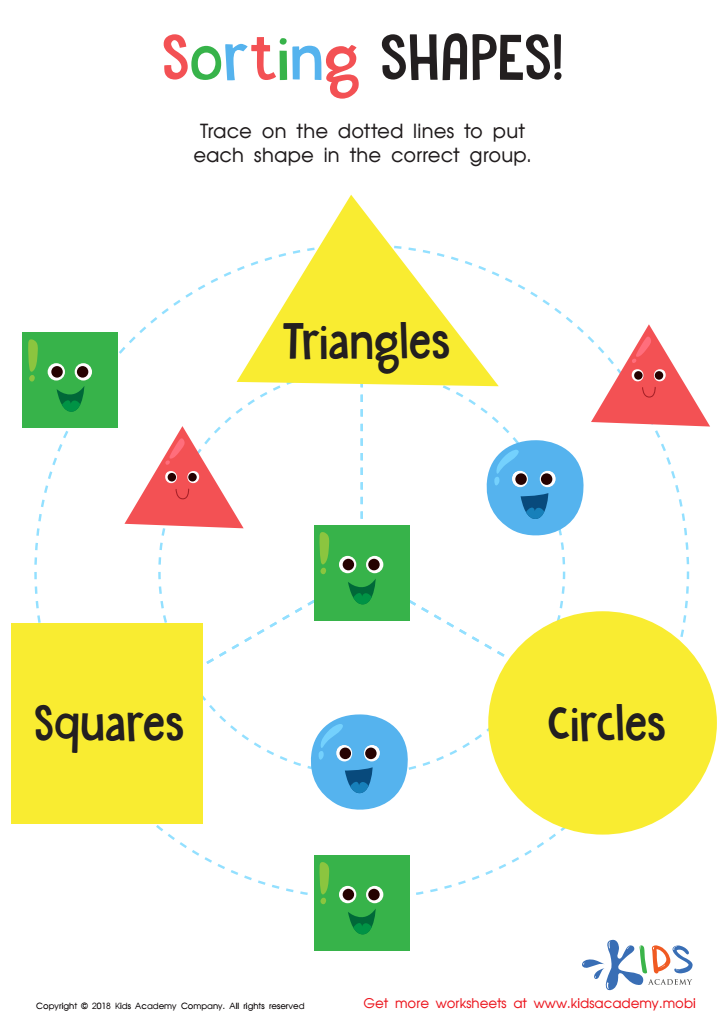

Sorting Shapes - Part 3 Worksheet
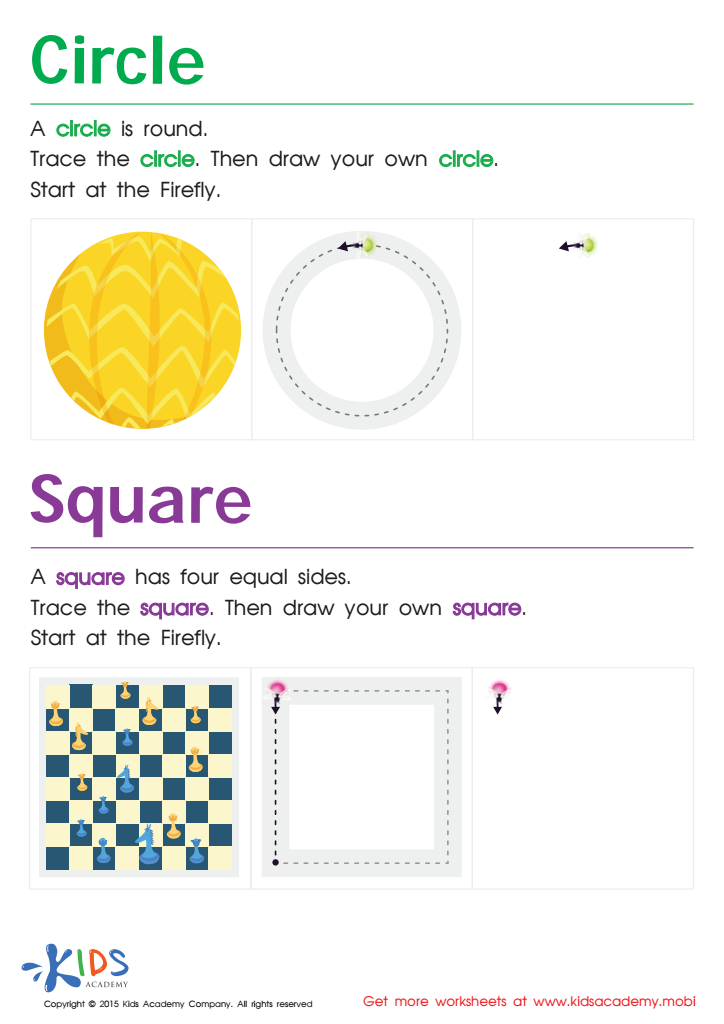

Trace And Draw a Circle And a Square Worksheet
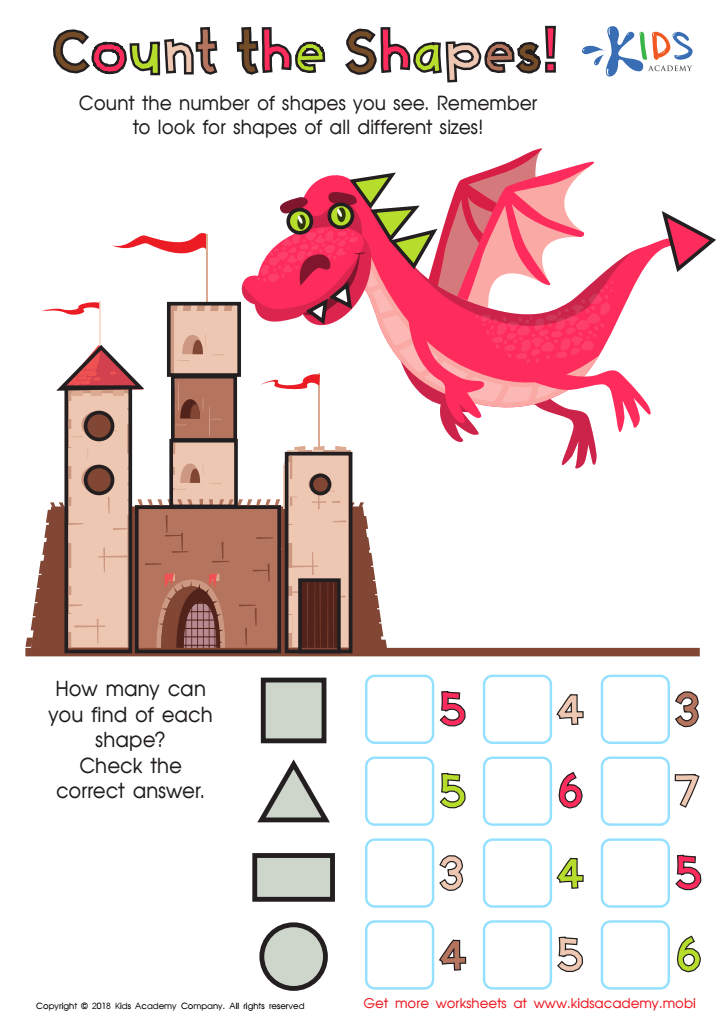

Count the Shapes Worksheet
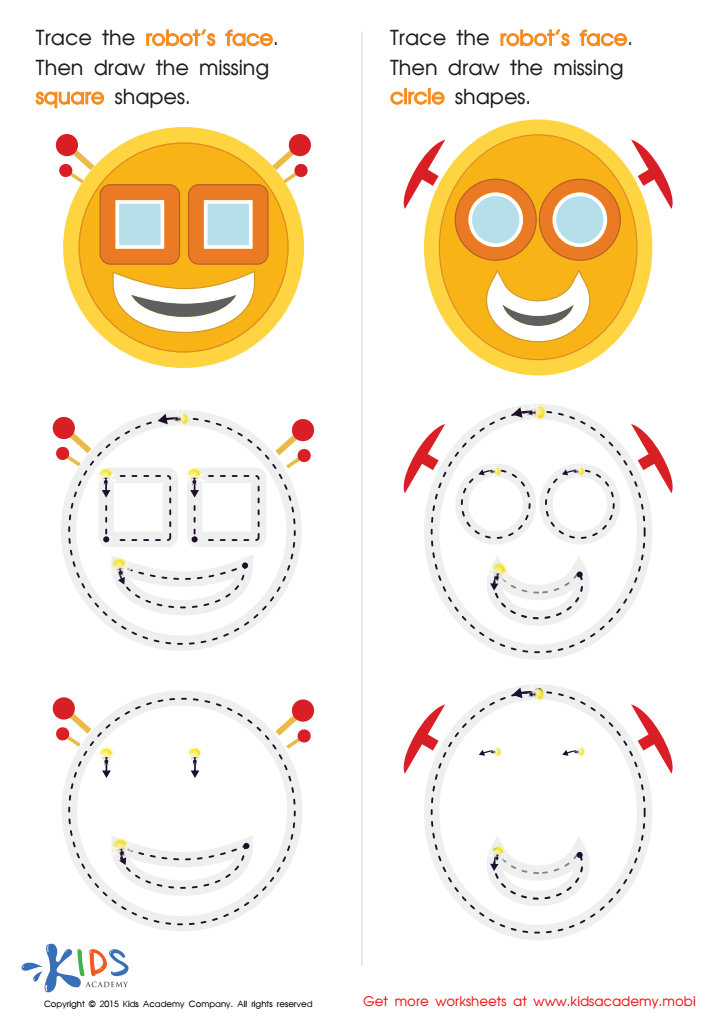

Practicing to Draw Circles And Squares Printable
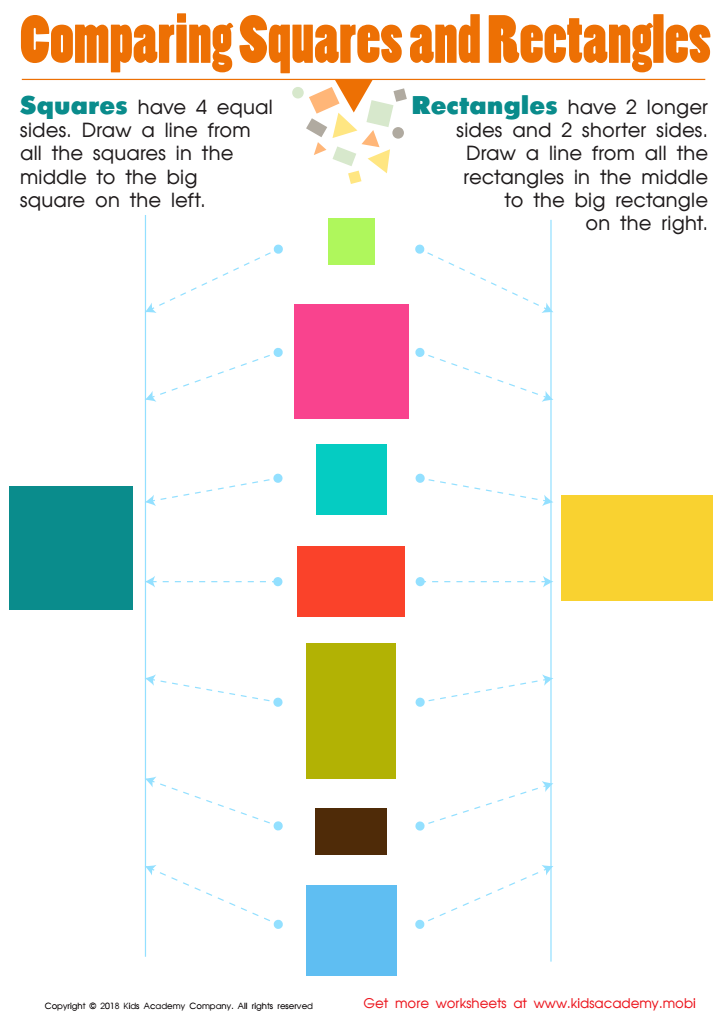

Comparing Squares Rectangles Worksheet
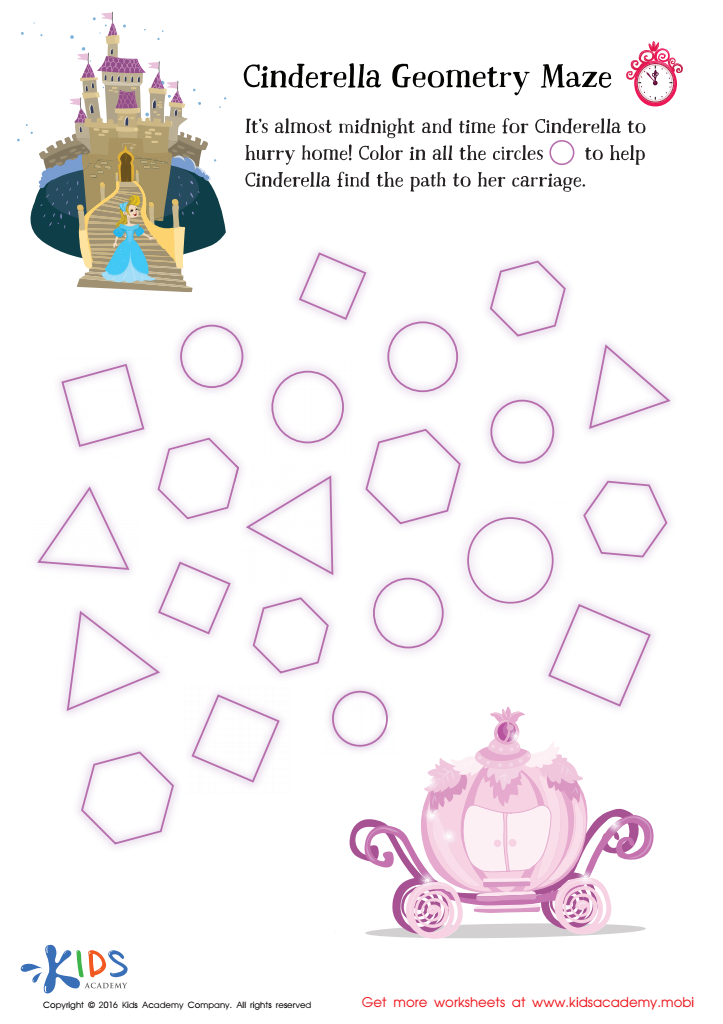

Cinderella Geometry Maze Worksheet


Preschool Geometry Match Up Worksheet
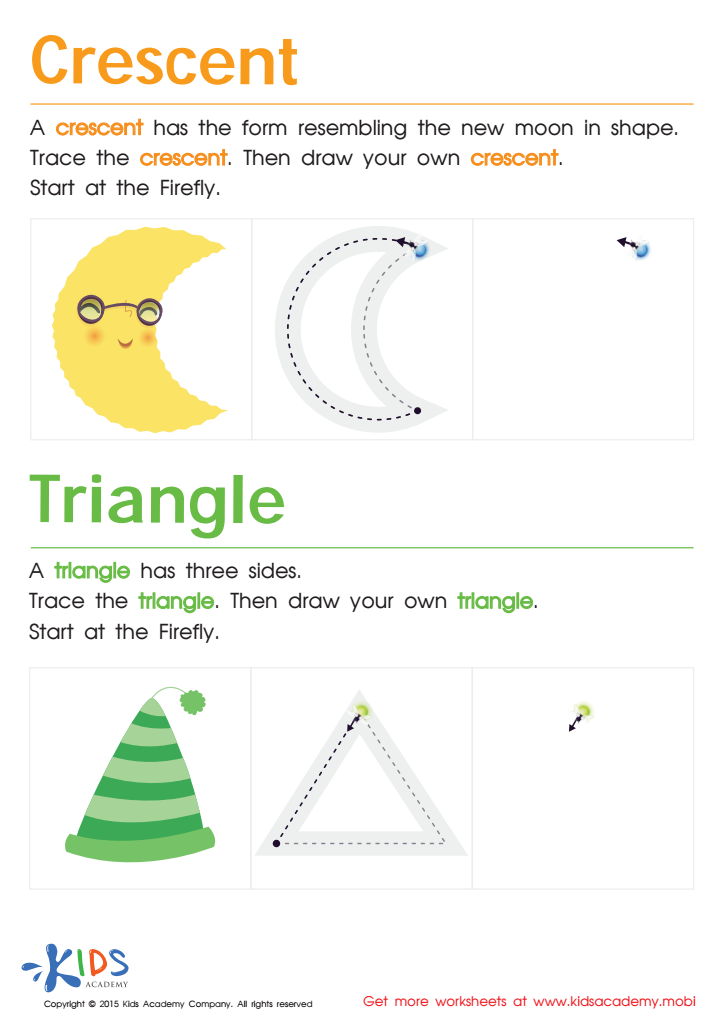

Learning to Draw Crescents And Triangles Worksheet
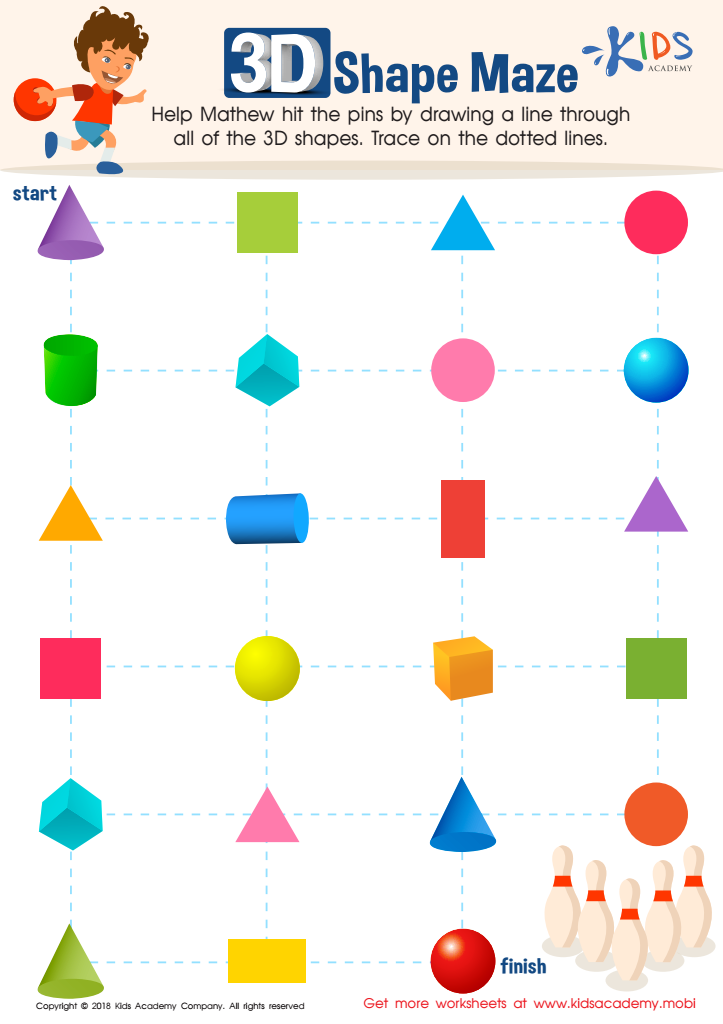

Shapes Maze Geometry Worksheet
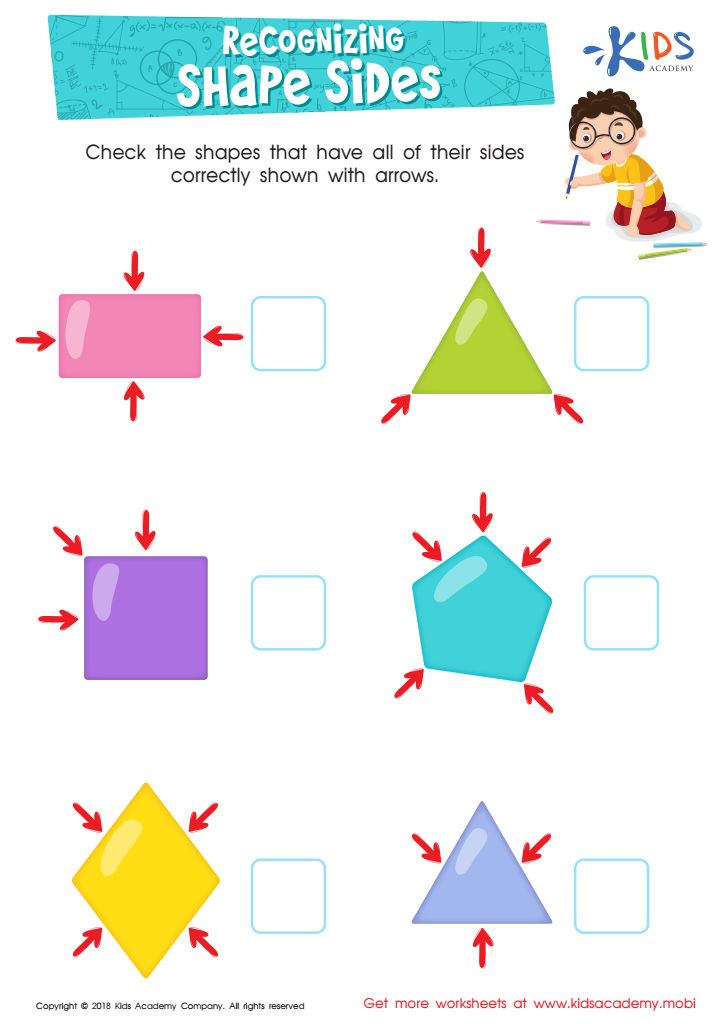

Recognizing Shape Sides Worksheet
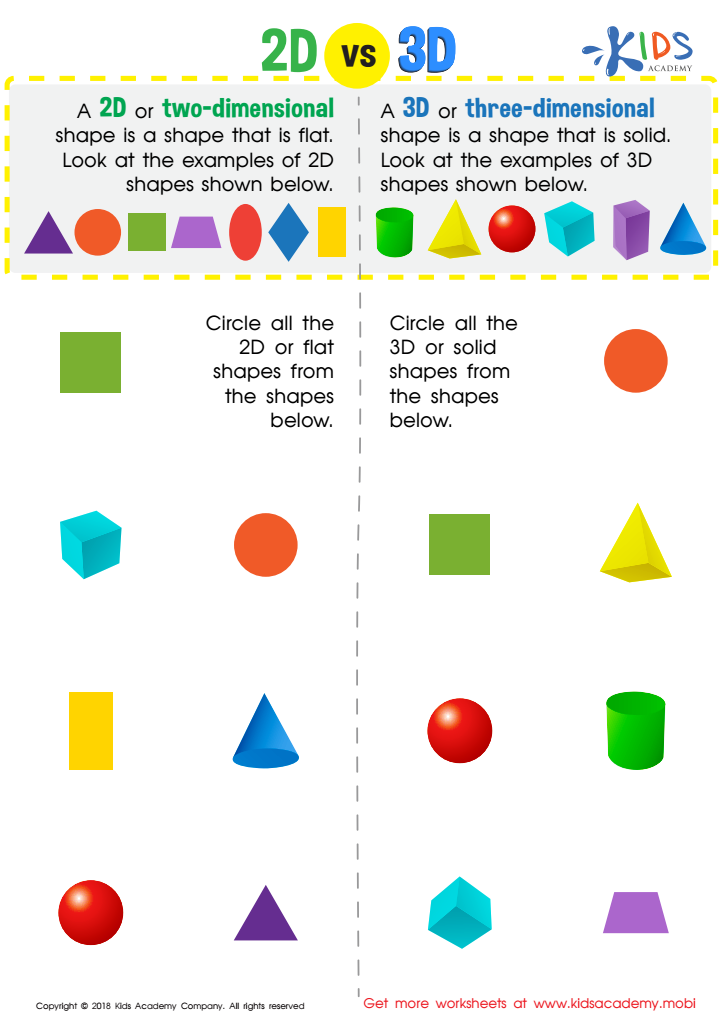

2D vs 3D Shapes Worksheet
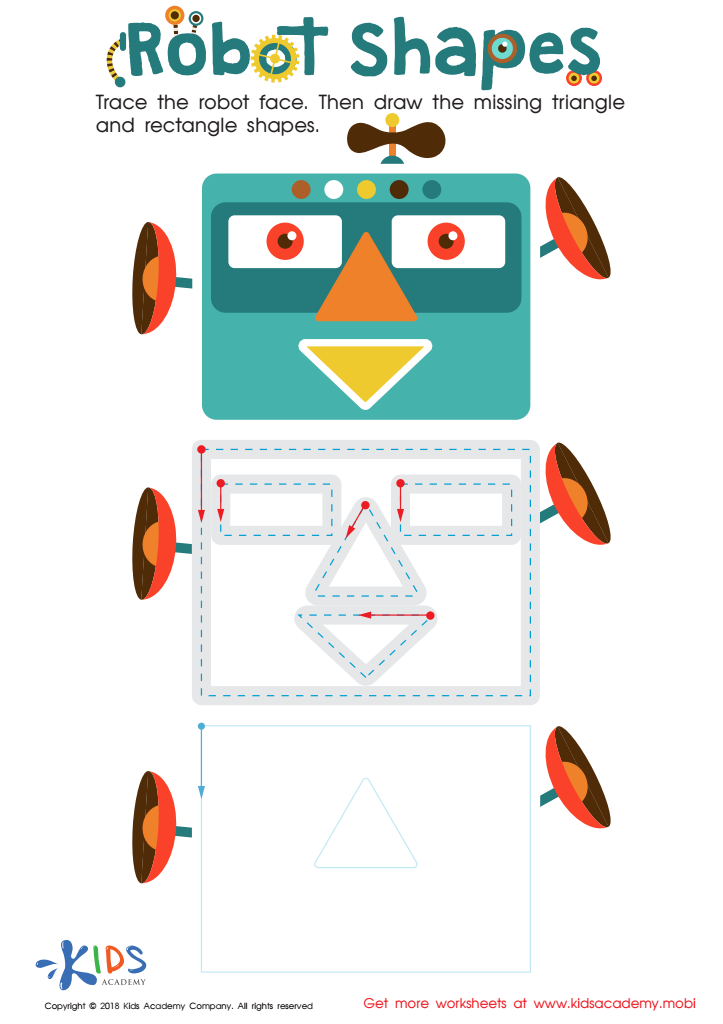

Robot Shapes Worksheet
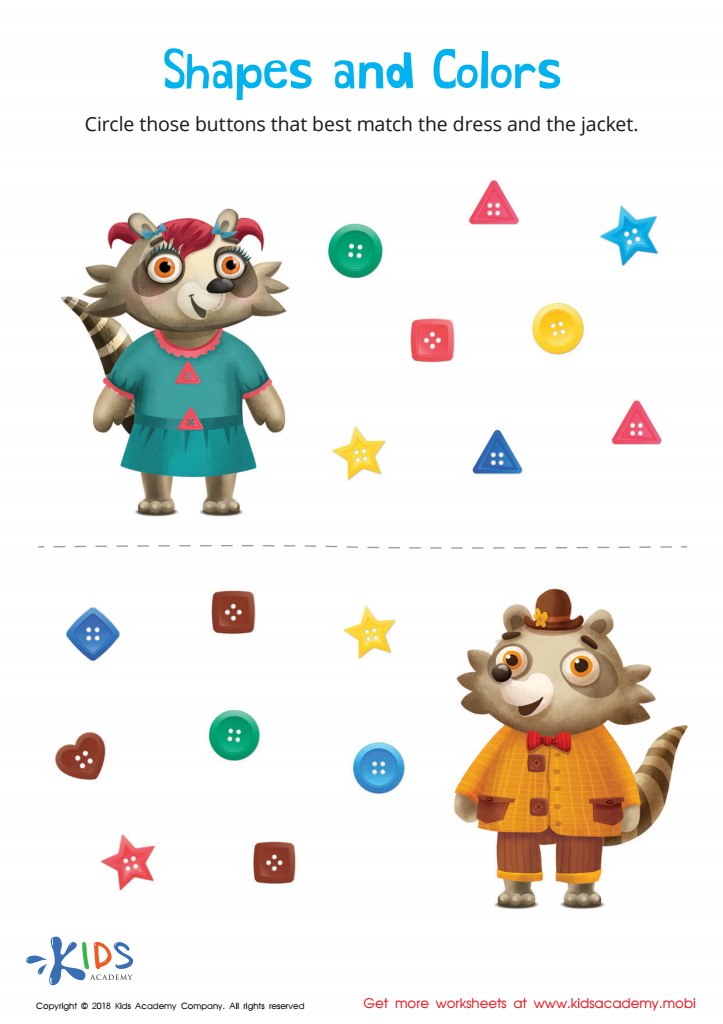

Shapes and Colors Worksheet
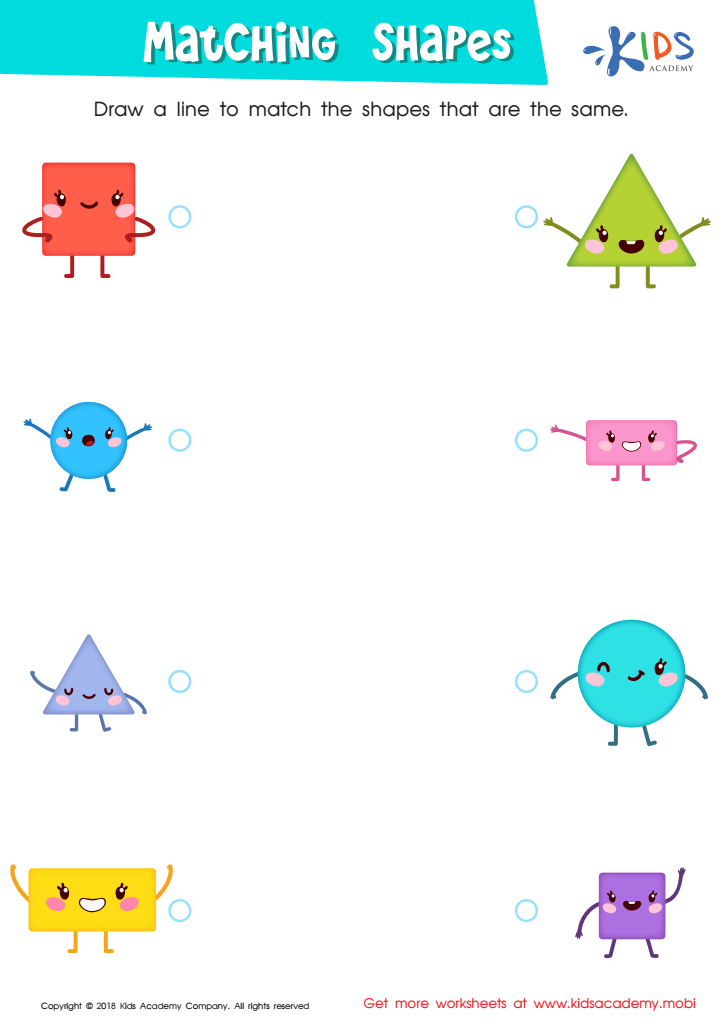

Matching Shapes Worksheet
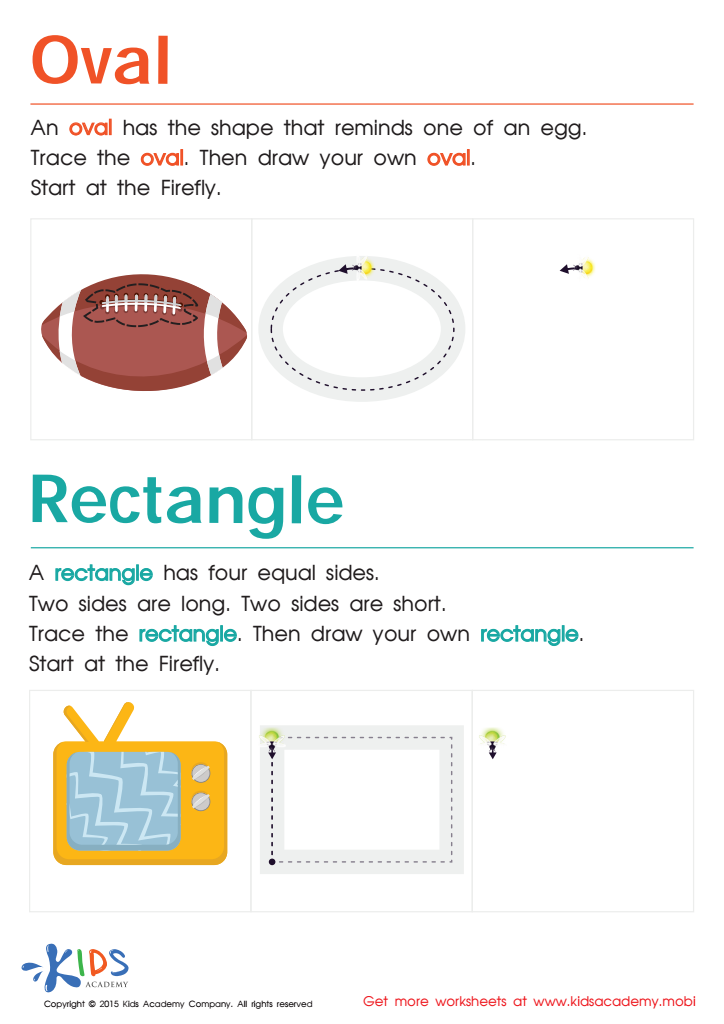

Easy Drawing of Ovals And Rectangles Worksheet
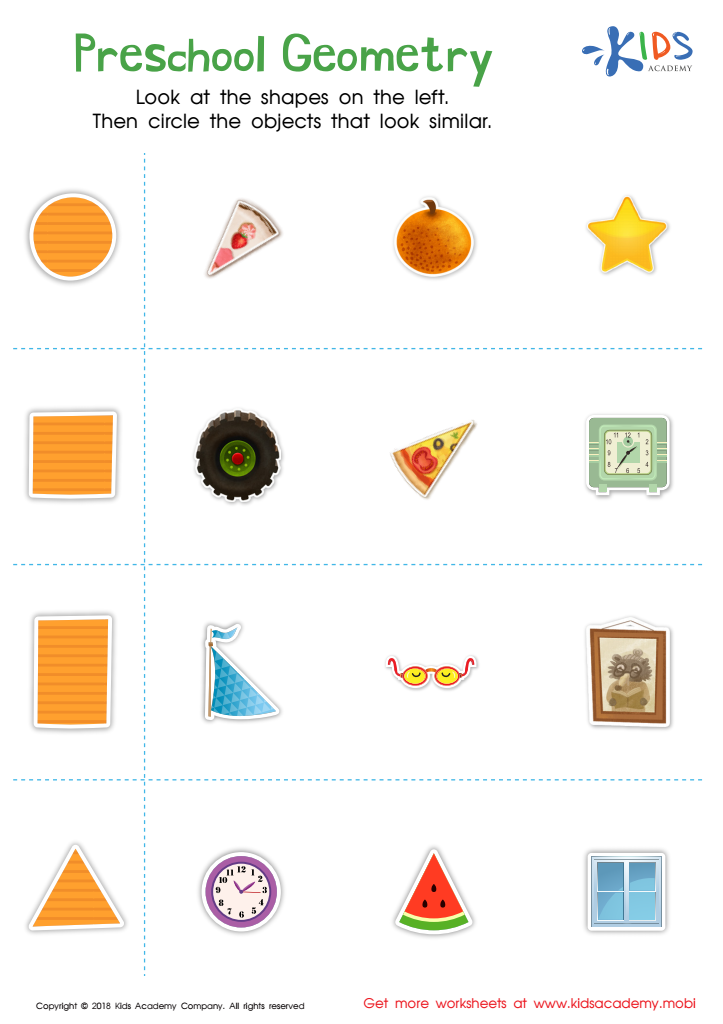

Preschool Geometry Worksheet
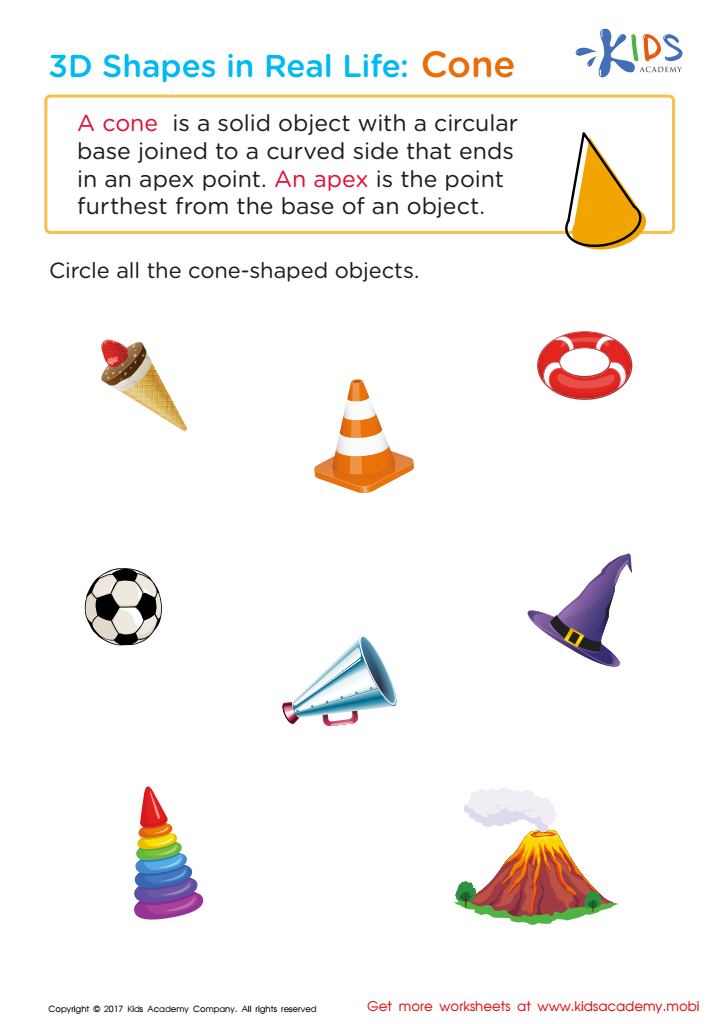

Shapes in Real Life: Cone Worksheet
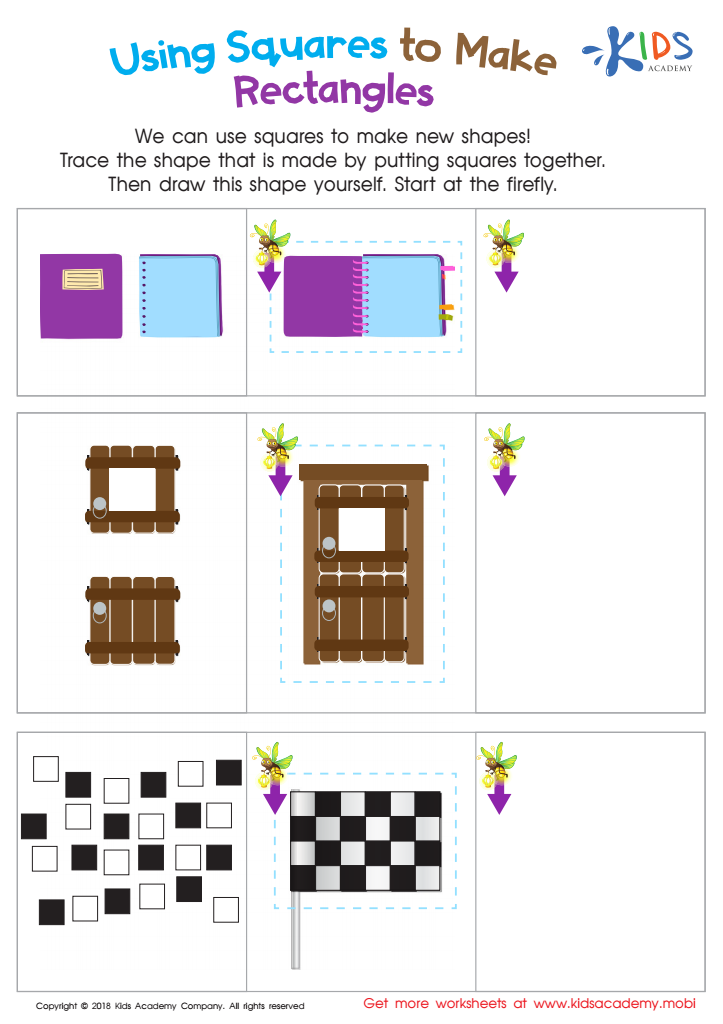

Using Squares to Make Rectangles Worksheet
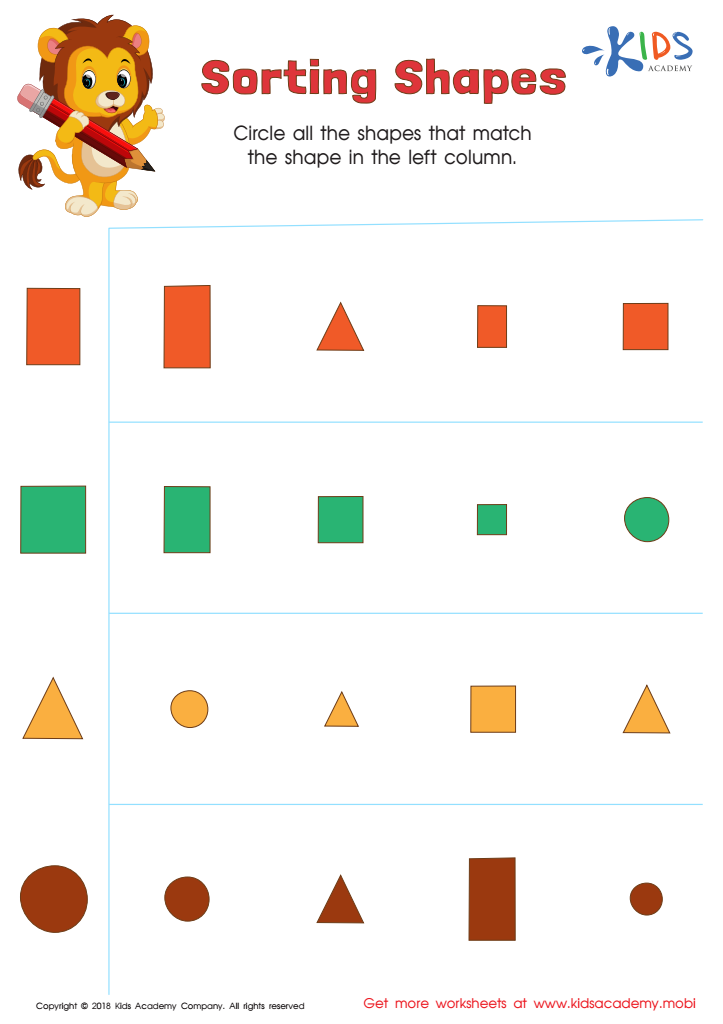

Sorting Shapes - Part 2 Worksheet
Shape recognition and understanding basic geometry are foundational skills for children aged 3 to 6, playing a crucial role in their cognitive development. At this early stage, children start to make sense of the world around them, and recognizing shapes helps them categorize and interpret their environment. Understanding shapes such as circles, squares, and triangles not only enhances their visual-spatial skills but also lays the groundwork for more advanced mathematical concepts later on.
Parents and teachers should care about shape recognition because it fosters critical thinking and problem-solving abilities. Engaging children in activities that involve shapes, such as puzzles, art projects, and interactive games, also encourages fine motor skills and hand-eye coordination. Moreover, learning shapes can boost language development as children learn to describe and classify objects.
Additionally, recognizing shapes reinforces patterns and sequences, key components of math literacy. Mastery of these concepts creates a strong base for future learning in various subjects. Finally, incorporating shape recognition activities into everyday routines makes learning enjoyable and relevant, making it more likely that children will develop a positive attitude toward learning and exploration. Investing time in shaping these skills will undoubtedly yield benefits in their academic journey and overall problem-solving capabilities.
 Assign to My Students
Assign to My Students












